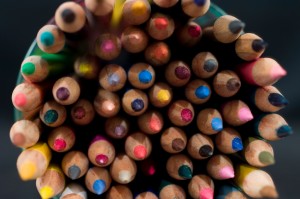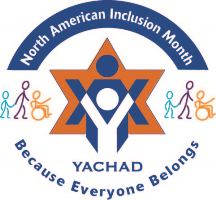 Her name was Shira. She had bright eyes, long brown hair, and liked to put mustard in her tuna fish sandwiches. I was in the fourth grade when we met, and as the new kid at school, I felt that I was the only one who didn’t know how to respond to the fact that was ‘different;’ she was the first person I had ever known with a disability. Shira had Down Syndrome, which was physically apparent and clear through social interaction. At first I had a hard time understanding her, so I didn’t really try.
Her name was Shira. She had bright eyes, long brown hair, and liked to put mustard in her tuna fish sandwiches. I was in the fourth grade when we met, and as the new kid at school, I felt that I was the only one who didn’t know how to respond to the fact that was ‘different;’ she was the first person I had ever known with a disability. Shira had Down Syndrome, which was physically apparent and clear through social interaction. At first I had a hard time understanding her, so I didn’t really try.
Yet as I got to know Shira better, I noticed her incredible sense of humor and loyalty, and I came to appreciate being her classmate. Through the years, my schoolmates and I became a tight knit group, and I was proud to introduce Shira as a classmate just as I would any other.
While she may have had some social limitations, I learned that Shira had a great understanding of emotions. She was the first to notice when someone was annoyed, sad, tired, or just blah. And she was the first to ask the person what was going on.
In high school, I volunteered with the Cleveland chapter of Yachad (my hometown), the Orthodox Union‘s incredible organization that focuses on the inclusion of those with disabilities within the greater Jewish community. Every week, we volunteers and Yachad members came together to share highlights from the past week, learn about the weekly Torah portion, and play games.
With Yachad, the line between Yachad members and volunteers blurred. It didn’t matter who had a disability, what kind of disability, or to what extent they experienced that disability. There were no pizza parties at the end of the year to thank us volunteers for coming. We weren’t bombarded with t-shirts or water bottles or other swag to reward us. Everyone who came to the Yachad meetings on Wednesday nights was there because it was fun, and it was a great way to spend a school night—not because we were looking for perks and prizes.
Held once a week, Yachad meetings were an hour and a half when everyone felt accepted. Those meetings helped me to develop a better understanding and awareness of how to respond to those who were ‘different’ like Shira. Since then, when I meet someone with a disability, I no longer experience the same social awkwardness. I don’t feel I have to tiptoe or that I’m walking on ice to not say or do something insensitive—people often freeze up, not knowing how to behave around those who function a little differently, but everyone has abilities and everyone has limitations, and Yachad helped me to understand to just treat them like everybody else. I can act normally, and treat him or her with the respect he or she deserves.
Shira attended Yachad events on occasion, but she wasn’t a regular. That’s okay. There were some who popped in and out. However, I got to learn a lot about the regularly attending Yachad members as individuals with varying interests, not just people with disabilities.
Max, for example, was an excellent piano player, with a special interest in 60’s music. Ashley was a total drama queen, and satisfied every image of a teenage girl: she was a cheerleader at her school, loved pink, and always opted to add sparkles wherever she could. When she told us that she was auditioning for the lead in her school play, we all became invested. Her best friend was the total opposite: a complete tomboy, who loved sports, and didn’t understand what all the sparkle is for. Watching them interact was watching a comedic routine.
At my high school graduation, I think all the teachers became teary-eyed because it was difficult to say goodbye to my class. As a cohesive unit, we were fun and lively, we took charge of school events, and although sometimes we slacked off academically, overall, we were a pretty smart bunch. Mostly though, I would say that the real cause of emotion was the moment the whole class stood up for a standing ovation as Shira received her diploma.
 As the class posed for pictures with our flipped tassels and prized diplomas, I remember watching Shira hold hers tightly. She may have needed more personal attention, but she earned her diploma. And wasn’t that her right? She should have the chance to have friends, go to school, and earn a high school degree. These are the memories we cherish forever—why should her experiences have been be any different?
As the class posed for pictures with our flipped tassels and prized diplomas, I remember watching Shira hold hers tightly. She may have needed more personal attention, but she earned her diploma. And wasn’t that her right? She should have the chance to have friends, go to school, and earn a high school degree. These are the memories we cherish forever—why should her experiences have been be any different?
That’s what NAIM is all about. Each February, as recognized by Congress, is North American Inclusion Month (NAIM). NAIM is a time to forget our differences, and consider what we have in common. It’s a time to remember that everyone deserves a chance at a normal life. It’s a time to be more inclusive, and go the extra mile to make everyone feel welcome. This February, let’s celebrate our individuality. Let’s do one thing each day that pushes us out of our comfort zones. Let’s concentrate on talents rather than shortcomings. Let’s eradicate expectations. Let’s remove labels.
What makes us ‘different’ is what makes us unique. It is so much better to be one in a million than one of millions. So here’s a challenge for this February: try to find out something you didn’t know about your friend, your neighbor, your coworker. You might be surprised to learn that he can secretly bake a mean chocolate cake; maybe you didn’t know that she likes to relax by reading her kids’ bedtime stories long after they’re asleep; you might discover a girl who puts mustard in her tuna sandwiches. When we appreciate how we differ from one another, we can be more accepting of others, and even more accepting of ourselves.
The words of this author reflect his/her own opinions and do not necessarily represent the official position of the Orthodox Union.
